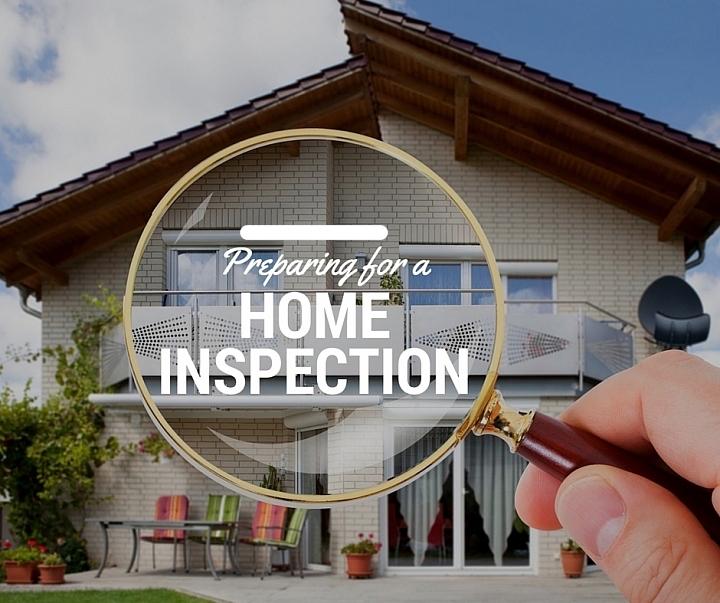2018
Preparing Your Home for Inspection

Congratulations! You've sold your home! Chances are the buyers' offer is subject to a satisfactory home inspection. This might be the last step between you and a final sale. As home inspectors, part of our process is to recommend items that need to be addressed and may detract from the desirability of your property. To minimize these detractors, there are a number of things that you can do ahead of time to help the inspection go smoothly and result in a satisfactory outcome for both parties.
Below are 21 Simple Things (5 Exterior & 16 Interior) that you, as a seller, can do to prepare the interior and exterior of your house for inspection:
Exterior:
 Clear your gutters and downspouts of all debris and clean them.
Clear your gutters and downspouts of all debris and clean them. - Trim back trees and shrubs so that they are not in contact with the sides or roof of the house.
- Test all exterior lights and make sure they are working correctly and are not broken. Replace bulbs and fixtures, if necessary.
- Ensure all exterior windows open and shut properly and haven't been painted shut. Make sure there is no damage to them and replace cracked or broken windows.
- Provide access to any outbuildings. Leave a remote control for the garage or a key if it is detached. Label all keys that might be needed during the inspection and leave them where the inspector can easily find them.
Interior:
- Clean your house. This is a simple, but often overlooked, tactic. A clean house tells the inspector that you take care of your home. Don't assume they will look past the mess; impressions, potentially wrong, will be formed by it.
 Test your smoke & carbon monoxide detectors to make sure they are working correctly. Put fresh batteries in them.
Test your smoke & carbon monoxide detectors to make sure they are working correctly. Put fresh batteries in them. - Test all interior light fixtures to make sure they work. If one isn't working, make sure the problem isn't something as simple as needing a new light bulb.
- Check under all sinks and in all bathtubs/showers to make sure there are no leaks. If there are, have them repaired before the inspection because the home inspector will find them.
- Make sure toilets don't continue to run after being flushed. Simple adjustments can usually be made to correct this.
- Check to make sure your electrical panel is correctly labelled.
- Install a new furnace filter as dirty filters will affect the efficiency of the unit and may indicate neglect towards basic household maintenance.
- Ensure there is sufficient workspace around the furnace and hot water heaters. Remove any items that might block the inspector's access.
- Ensure all pilot lights are lit. Home inspectors will not turn them on if they are unlit as they are not covered by insurance for that type of liability. The buyer will want proof that all pilot lights work before completion so ensuring they are lit will prevent a return visit or any delays in the subject removal.
- Ensure that there is access to the attic, crawlspace and garage. Clean up all spaces - moving boxes away from walls; vacuuming up spider webs. Make sure there is no water leakage in any of the spaces. Check all spaces for rodent droppings as this is a good indication of an unwanted opening into one of these spaces.
- If you are moving prior to the sale of your house, leave the utilities connected. The home inspector will want to test all the appliances, the furnace and air-conditioning systems and outlets and can't do this if there is no power.
- Think ahead - if you are aware of any health and safety issues, such as the presence of asbestos or lead, disclose them during the selling process. While these types of hazards can't be confirmed without additional testing, the possibility of them may scare buyers away if found unexpectedly during the inspection.
- If you are doing repairs ahead of time, hire a professional. The difference between an 'amateur fix' and one done by a professional is usually noticeable and will speak to the care and attention you have paid to the home while living in it.
- Provide documentation for any major repairs, i.e. roof replacement, or any remodelling projects that have occurred.
- Be ready on time. If the inspection is scheduled for 9:00am, be ready before then. Inspectors often arrive early to start on the outside of your home so prepare for that. Leave your curtains drawn or blinds down until everyone is dressed and ready to go for the day. This will ensure there are no embarrassing moments for you, the inspector or your potential buyers!
- Be prepared to leave your house for 2 to 4 hours during the inspection. Buyers will often have questions during the inspection and if the home owner is present, they may be reluctant to ask them. If their questions can't be answered in a timely fashion, it may slow down completion or even prevent the buyers from going forward.
Finally, the best recommendation that we, as home inspectors, can give you is to have a pre-listing inspection done. This type of inspection will allow you to identify and remedy any risk items before they can jeopardize your sale. Pre-listing inspections often occur in a thriving real estate market where multiple offers are expected. While a home inspection is not a necessary subject, like financing, having the inspection done ahead of time, by a reliable and licensed inspection company such as ourselves, may strengthen your negotiating position in a real estate environment where multiple offers, bidding wars and quick completions are rapidly becoming the norm.
Please visit our website for more information on Pre-Listing Inspections.


